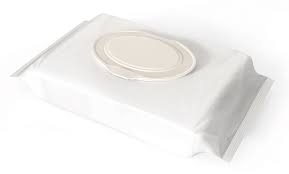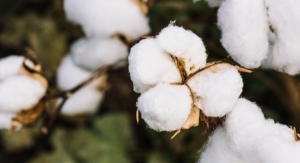A Japanese company has developed the world’s first paper-based lid for wet wipes packaging. This development has the potential to eliminate 80% of the plastics from wet wipes packaging, an important development as the industry prepares for upcoming regulations limiting the use of plastics in consumer goods and packaging materials.
HasoCap is made of a special blend of cellulose fibers, which can maintain rigidity while also staying relatively thin. This composition also allows it to print well. It is manufactured to the tightest tolerances, providing consumers with an exact and precise closure system that closes with a distinct click.
According to Jonathan Bourget, principal of Apix Rex, a consultancy working with HasoCap, the cap is reaching the end of its business development phase and has been the subject of a number of customer trials as well as inquiries from all over the world. By next year, the company plans to be able to make 50 million pieces of the cap per month. The design can be dropped into existing production and packaging lines with minimal configuration changes. HasoCap can even use the same adhesive as plastic caps.
“The product responds to the conundrum that the wipes market was facing—their clients need to improve the environmental footprint by doing something visible,” Bourget says. “By replacing the plastic cap with something that can degrade while maintaining the premium look of the product, they are achieving this.”
During the past 12 months, the European Commission has been aggressively working on developing a Single-Use Plastic Directive which aims to reduce the amount of plastics going into landfills and winding up in marine litter to help transition Europe to a circular economy. Meanwhile, in the U.S., while no federal legislation is expected, more than 20 states have introduced more than 100 bills related to plastics. Probably the most ambitious of these bills, the California Circular Economy and Plastic Reduction Act, particularly targets the use of single-use plastics as packaging materials.
Each year, 14,000 tons of polypropylene waste is generated by flip-top lids of wet wipes packaging.
Outside of the wipes market, the Haso technology can also serve as a substitute to polystyrene coffee cup lids, which are 100% compatible with the EU single use plastics directive, and the company is working on a whole range of solutions to plastic-based food packaging materials.
“Replacing plastics with renewable materials is the goal of the company,” Bourget adds. “Haso’s slogan is in Harmony with Nature.”







